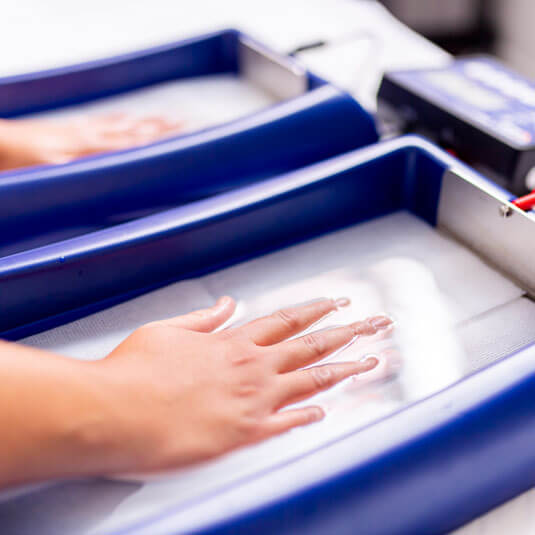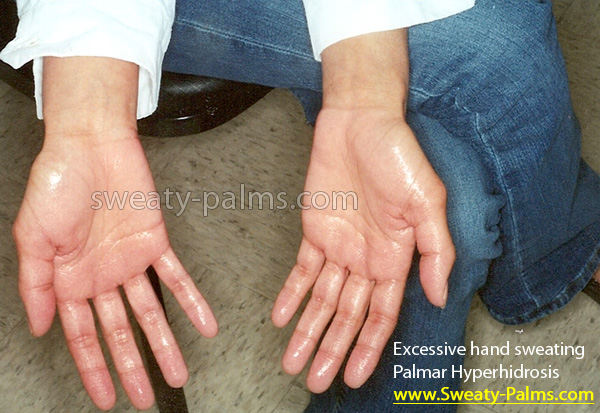Introducing the Intricacies of Excessive Sweating: A Comprehensive Guide to Diagnosis and Administration
Too much sweating, medically referred to as hyperhidrosis, is a problem that impacts a significant variety of people and can have a profound influence on their high quality of life. While sweating is an all-natural physical feature, its overactivity in hyperhidrosis presents a distinct collection of obstacles that often go beyond simple discomfort. Comprehending the underlying reasons, identifying the signs and symptoms, and browsing the analysis procedure for hyperhidrosis can be intricate jobs. In this comprehensive guide, we will explore the complexities of hyperhidrosis, from its diagnosis to the array of treatment options available, shedding light on effective monitoring strategies for those grappling with this problem.

Recognizing Hyperhidrosis Causes
Hyperhidrosis creates can be attributed to different variables such as genetics, hormonal discrepancies, and particular medical conditions. Genes play a substantial role in main focal hyperhidrosis, where people acquire the condition from their family participants. By recognizing the specific elements contributing to too much sweating, medical care service providers can tailor therapy plans to deal with the underlying reason, supplying alleviation and improving the high quality of life for people influenced by hyperhidrosis.
Identifying Hyperhidrosis Symptoms

In addition, hyperhidrosis signs and symptoms may manifest in social and psychological distress, as individuals might really feel ashamed or anxious concerning their sweating, causing avoidance of social scenarios (Exessive Sweating). In addition, repeated episodes of too much sweating can lead to skin maceration, fungal infections, and an overall decline in self-confidence
Diagnostic Refine for Hyperhidrosis
Starting the analysis process for too much sweating entails detailed assessment of the person's clinical background and physical assessment. Asking about the onset, period, and sets off of sweating episodes is critical to separate in between primary focal hyperhidrosis and second generalized hyperhidrosis. Case history needs to also include inquiries about drugs, medical conditions, and household history of hyperhidrosis.
During the health examination, particular interest is paid to the locations affected by sweating. The medical care supplier may examine the level of sweating, check for indications of underlying problems, and evaluate the impact of sweating on the person's top quality of life. Additionally, specific examinations like the gravimetric examination, starch-iodine test, or skin conductance measurements may be carried out to evaluate the quantity of sweat produced.
Moreover, in instances where second hyperhidrosis is believed, added examinations such as blood examinations, pee examinations, and imaging research studies might be suggested to determine the underlying root cause of excessive sweating. The diagnostic process aims to properly establish the kind and source of hyperhidrosis to assist proper administration methods.
Treatment Choices for Hyperhidrosis
When dealing with excessive sweating, various therapy alternatives are offered to minimize signs and improve the person's lifestyle. The therapy method for hyperhidrosis depends on the severity of signs and the patient's reaction to initial treatments.
Topical therapies, such as aluminum-based antiperspirants, are commonly suggested as the first line of protection for handling mild instances of hyperhidrosis. These products work by connecting the sweat ducts, hence minimizing the amount of sweat that gets to the skin's surface. For people with much more extreme signs, dental medicines like anticholinergics may be suggested to assist lower sweating. Nevertheless, these medications can have adverse effects and are not appropriate for every person.

Effective Management Strategies
To properly handle hyperhidrosis, a comprehensive and personalized therapy strategy tailored to the client's details needs and reaction to previous treatments is essential. Iontophoresis, including the usage of a reduced electric current to minimize sweat gland activity, can be useful for both palmoplantar and axillary hyperhidrosis. A multidisciplinary method involving skin specialists, key treatment physicians, why not try these out and, if required, specialists, can maximize the monitoring of hyperhidrosis.
Conclusion
In verdict, hyperhidrosis is a problem defined by extreme sweating, which can significantly impact a person's top quality of life. With appropriate diagnosis and management approaches, people experiencing from hyperhidrosis can find alleviation and enhance their general well-being.
Too much sweating, medically known as hyperhidrosis, is a problem that impacts a significant number of people and use this link can have an extensive impact on their top quality of life. By determining the particular factors adding to extreme sweating, healthcare carriers can tailor treatment strategies to address the underlying reason, using alleviation and improving you could try here the top quality of life for people affected by hyperhidrosis.
Hyperhidrosis, defined by excessive sweating past what is necessary for managing body temperature, can dramatically influence an individual's top quality of life. Asking concerning the beginning, period, and sets off of sweating episodes is critical to separate in between main focal hyperhidrosis and secondary generalised hyperhidrosis. Exessive Sweating.In verdict, hyperhidrosis is a condition defined by too much sweating, which can significantly affect a person's quality of life
Comments on “Targeted Dermatology Treatments for Hyperhydrosis of Hands and Feet: Effective Solutions”